Whenever I talk about building CompanyEgg, a global business search engine, the first response I hear is typically:
“What about Google?”
What better criteria to judge Google, than with the criteria they judge others?
Google has pushed webmasters to make fast websites and has made tools available to measure the speed of websites. One such tool is Google PageSpeed Insights. This tool allows webmasters to measure various metrics that impact how fast websites load on both mobile and desktop.
Google was definitely not the first to create these tools. AOL created WebPageTest and open sourced it in 2008, Yahoo created yslow and open sourced it, and Akamai had their own tooling that predated everything. Google has taken all of these tools and combined the various metrics and some of their own metrics into PageSpeed Insights.
Google has incentives to have websites be fast
If a web surfer clicks a link from the Google search results pages, that page the user clicked needs to be fast. If the page shown in the results is slow, that reflects poorly on Google.
Is Google User friendly? Is Google fast?
Google.com is extremely fast and Google has done tests that show if they artificially slow down the results on Google by mere milliseconds, it decreases the number of searches a user does. Google has incentives for users to search more because it means they can show more ads and thus make more money.
But Google’s own products that users click through to, sites like Google Maps that a user may click on from a search page, are slow. Google gives themselves preferential treatment on their own products by including special results, such as those shown for Google local search results that click through to Google Maps.
Google’s frontend vs their backend hypocrisy on other Google products
Google is the $1T elephant in the room, but they are an advertising elephant. We’re not trying to compete with Google on advertising – we’re competing with Google for a better user experience. We’re focused on creating the best experience possible for users, respecting both their time and attention.
There are so many ways I can respond to the question, “What About Google?” But really, the easiest way to respond is by saying Google doesn’t care about users. They may care about users on their main Google search results, but if you go to any Google property, the user experience is horrible and doesn’t follow the guidelines they hold webmasters and business owners to.
How does Google Maps do on mobile?
This is the perfect example of Google not caring about users, or following their own guidelines for that matter. Below is a screenshot from Google’s own PageSpeed Insight tool on a mobile device, something that you would expect a company with a $1T market cap to ace.
Google Maps scores 54/100 on Google PageSpeed Insights:
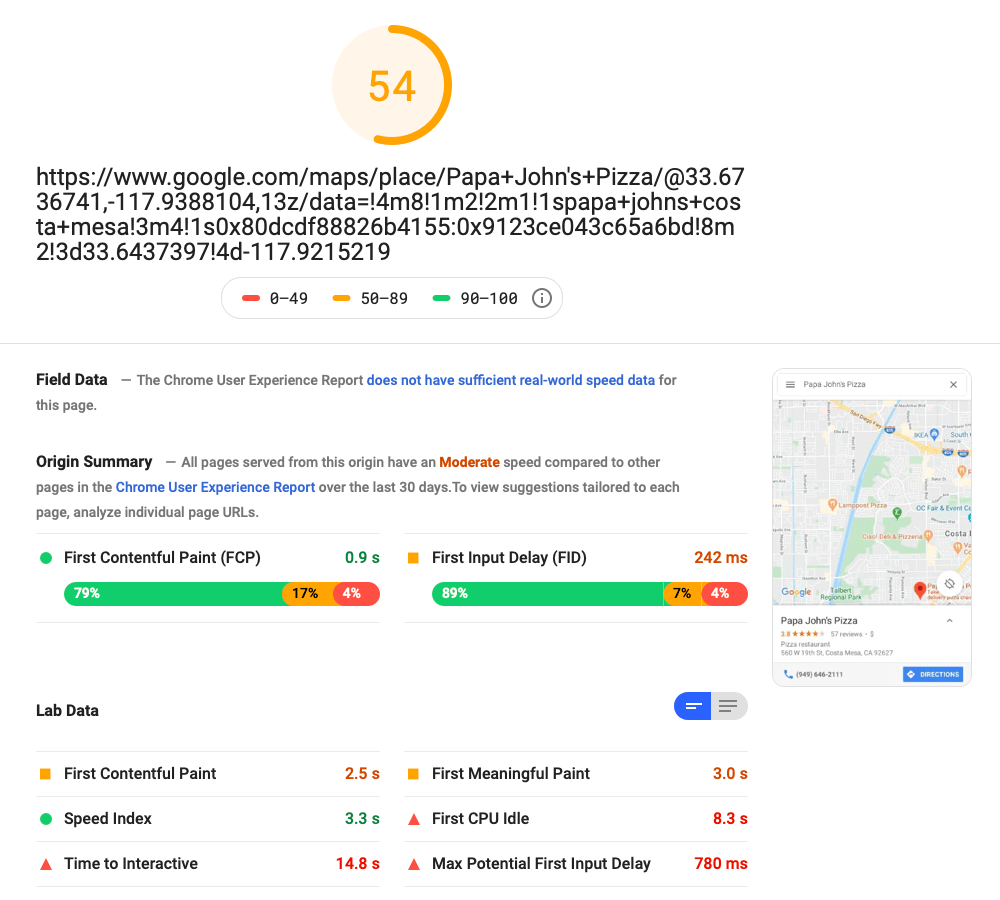
Google PageSpeed Insights Test for Google Maps Listing on Mobile
Google Maps Result for Mobile. Taken directly from a Google PageSpeed Insights test created to measure how fast a webpage loads. Google fails miserably on mobile.
And what about CompanyEgg, our business search engine on mobile?
Well, we do care about users. In fact, when Sean Rigo and I set out to build CompanyEgg, we were obsessed with making the fastest business search engine because we knew it would be absolutely integral to our plans to launch datasets in emerging markets where access to fast mobile connections is often lacking.
We get a 99/100 on Google PageSpeed Insights:
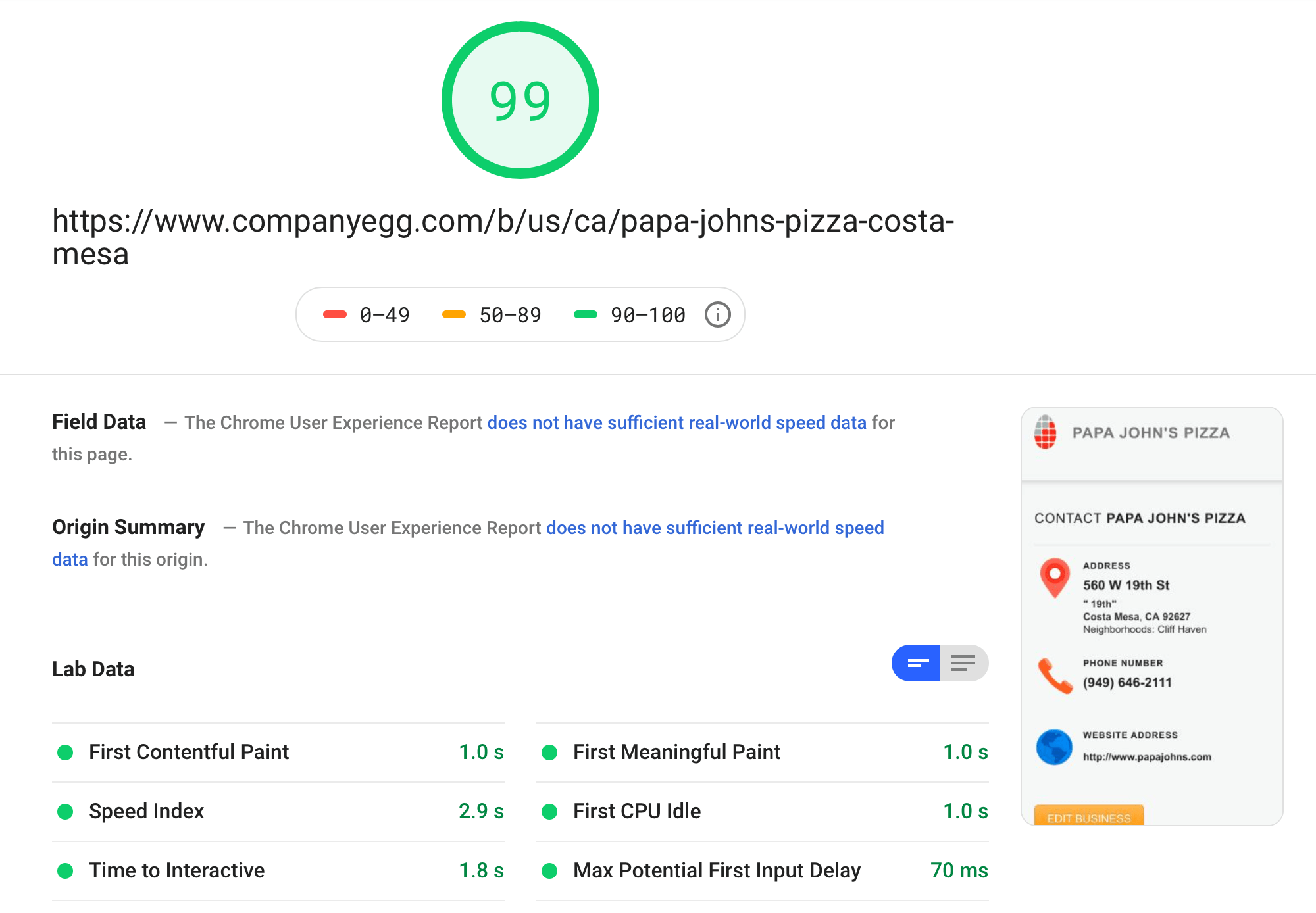
Google PageSpeed Insights Test for CompanyEgg Listing on Mobile
CompanyEgg Result for Mobile. Taken directly from a Google PageSpeed Insights test created to measure how fast a webpage loads. CompanyEgg wins.
This is beyond comprehension, especially considering our team at CompanyEgg is less than 10 people. One would expect a company with more than 100,000 employees at their disposal to have a better score than a team of 10 with the testing tool they created.
What about Google Maps on desktop?
Google Maps scores 20/100 on Google PageSpeed Insights:
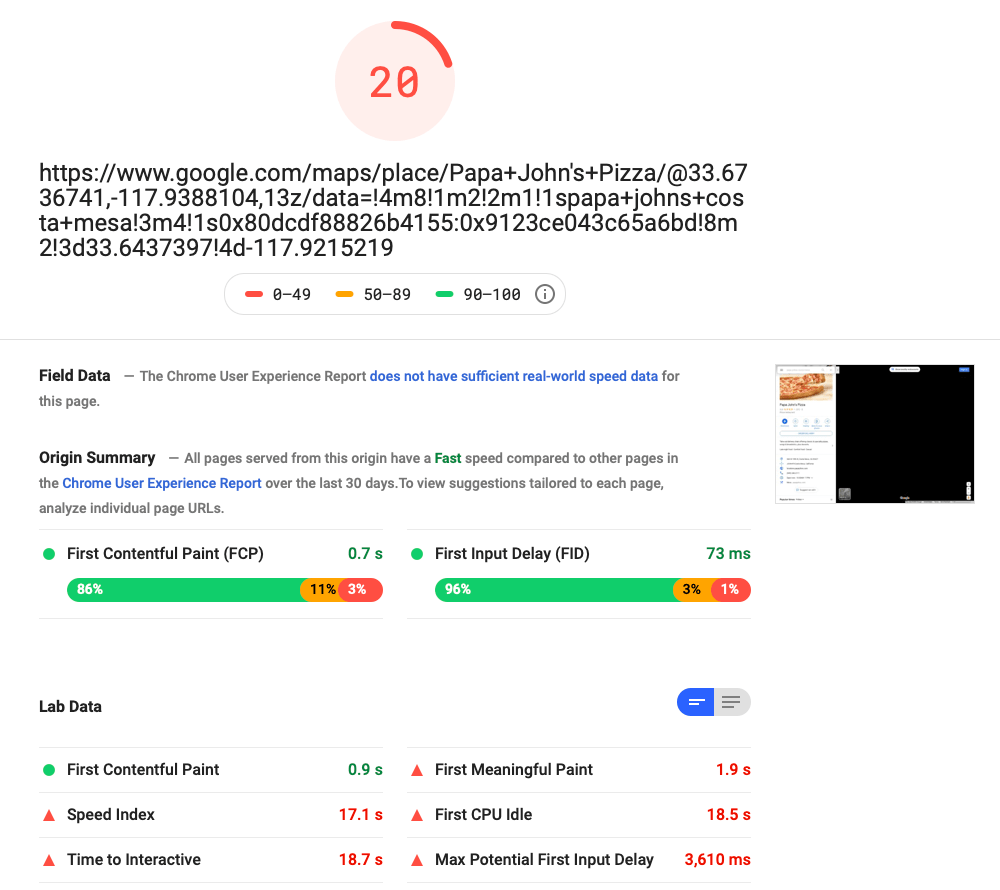
Google PageSpeed Insights Test for Google Maps Listing on Desktop
Google Maps Result for Desktop. Taken directly from a Google PageSpeed Insights test created to measure how fast a webpage loads. Google does even worse on desktop.
What about CompanyEgg on desktop?
We get a 99/100 on Google PageSpeed Insights:
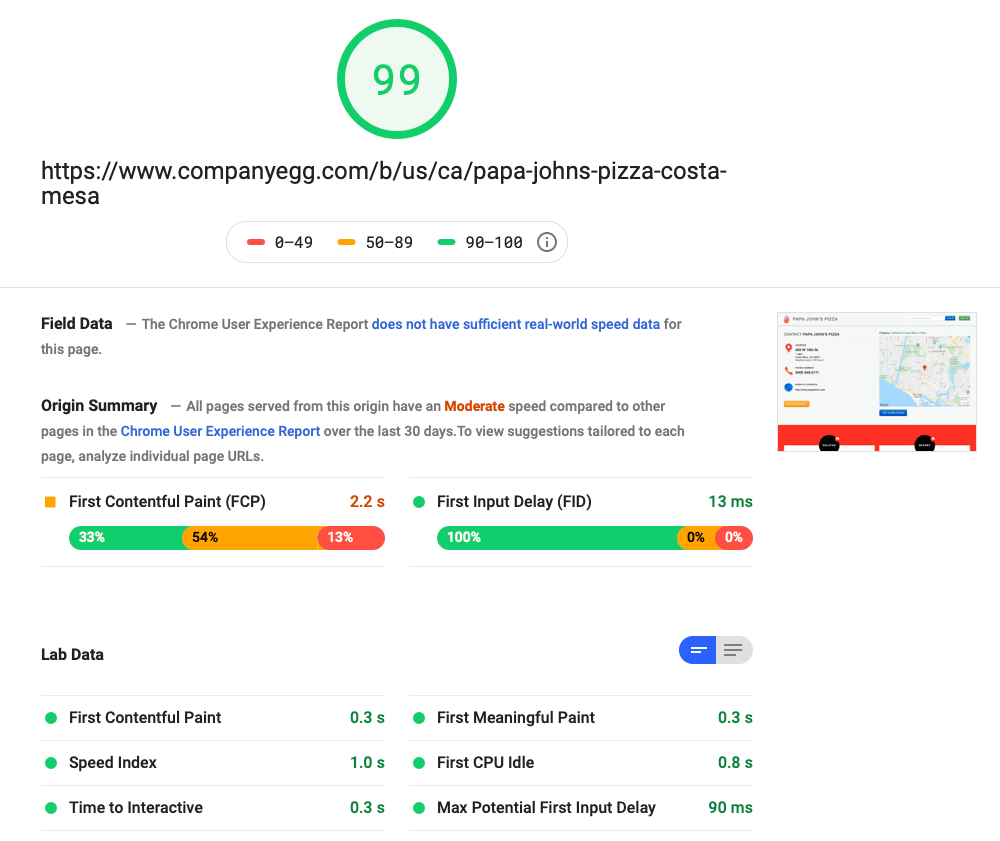
Google PageSpeed Insights Test for CompanyEgg Listing on Desktop
CompanyEgg Result for Desktop. Taken directly from a Google PageSpeed Insights test created to measure how fast a webpage loads. CompanyEgg wins, again.
Google is an advertising search engine
Google is an advertising company that built a search engine to show you an ad whenever possible. In fact, advertising accounts for nearly 85% of Google’s revenue.
Google has pushed more and more advertising into their search results, so much advertising that they are often all a user sees above the fold when doiong a search. It’s nearly impossible to determine what is an ad and what is not.
One of the recent updates to the Google search showed the favicon (favorite icon) from websites in the search results. While this was a win for webmasters early on, it was actually dark design for an upcoming Google update to their ads displayed in search. The ads in Google search now display a simple black message labeled ‘Ad’ in the same place that these favorite icons appear.
Google has since removed the favorite icon from websites displaying in search probably because of the backlash they received.
One can tell it’s an ad if there is only one ad shown, but when the whole top half of the screen is ads, it’s hard to tell:
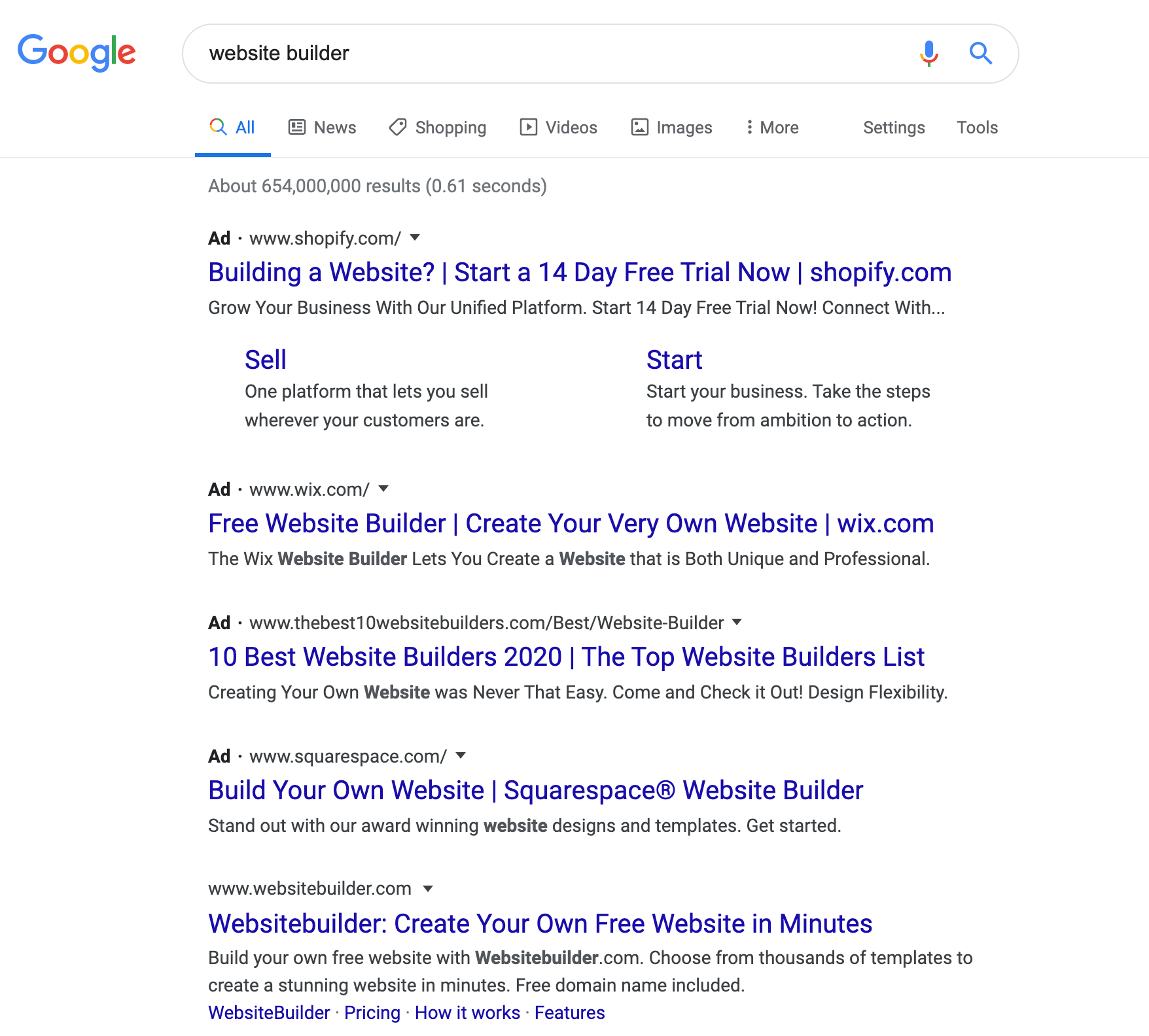
Screenshot for Google search website builder
Can you tell what is an advertisement and what is not?
CompanyEgg is different
We are building a global business search engine, something that should exist on one domain. It’s 2020 and I find it hard to believe that you can’t go to one place and search for businesses all over the world and only see business data.
The world deserves a global business search engine and that’s what we’re building:
A place for all 120M global businesses
We want businesses to build sustainable business models that build real asset value into their brands. We’re not interested in having advertising plastered all over our site that misleads consumers. We want to sell business owners real products that build real asset value into one of the only things they can truly own - their website.
Come do a business search and get what you want. I promise you won’t accidentally click an ad.
Go ahead and test for yourself:
https://developers.google.com/speed/pagespeed/insights/
Google Maps listing:
https://www.google.com/maps/place/Papa+John's+Pizza/@33.6736741,-117.9388104,13z/data=!4m8!1m2!2m1!1spapa+johns+costa+mesa!3m4!1s0x80dcdf88826b4155:0x9123ce043c65a6bd!8m2!3d33.6437397!4d-117.9215219
CompanyEgg listing:
https://www.companyegg.com/b/us/ca/papa-johns-pizza-costa-mesa
Side note: this site gets a 100/100 on mobile:
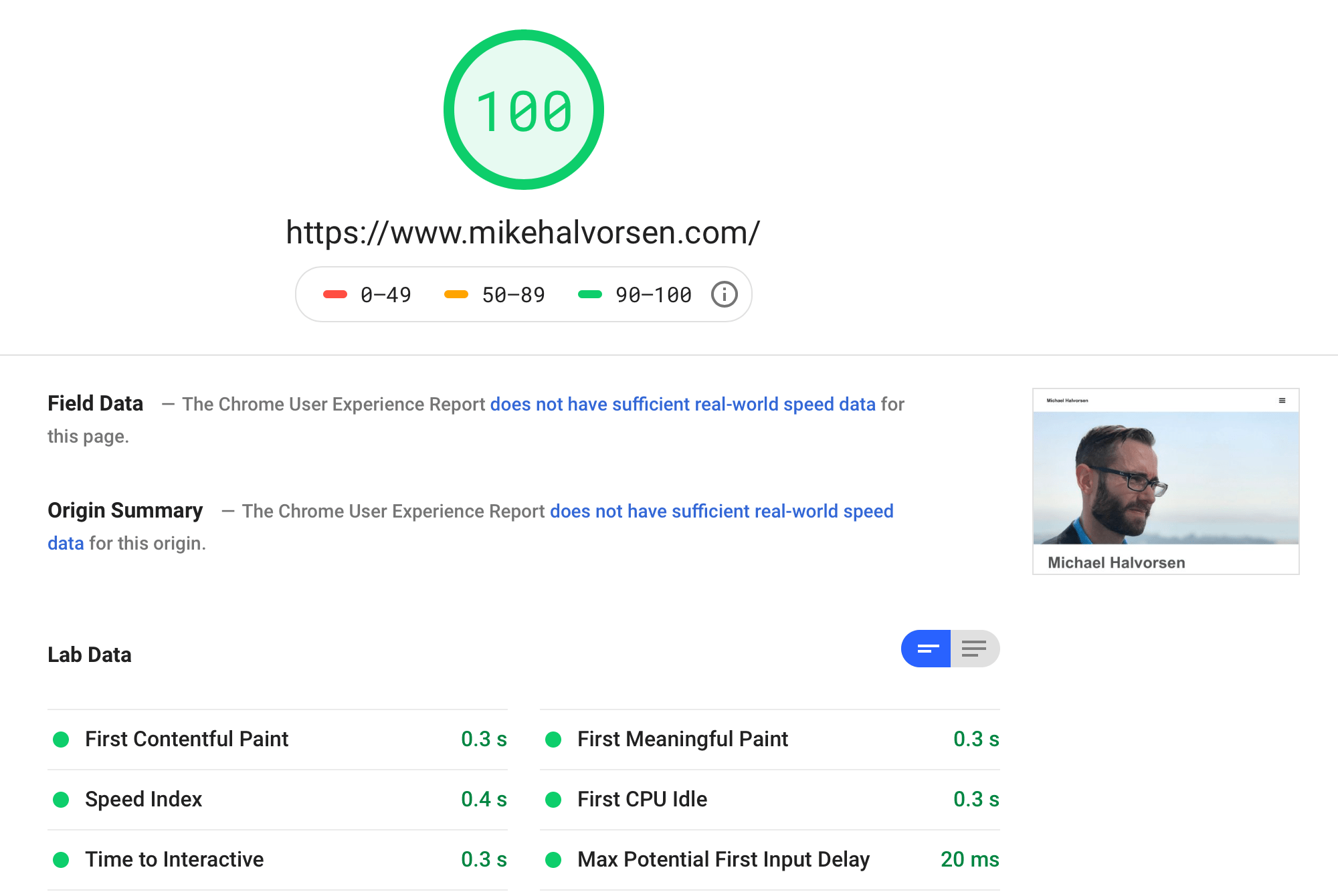
Google PageSpeed Insights Test for Mike Halvorsen on Desktop
Result for this website on Desktop
And this site gets a 100/100 on desktop:
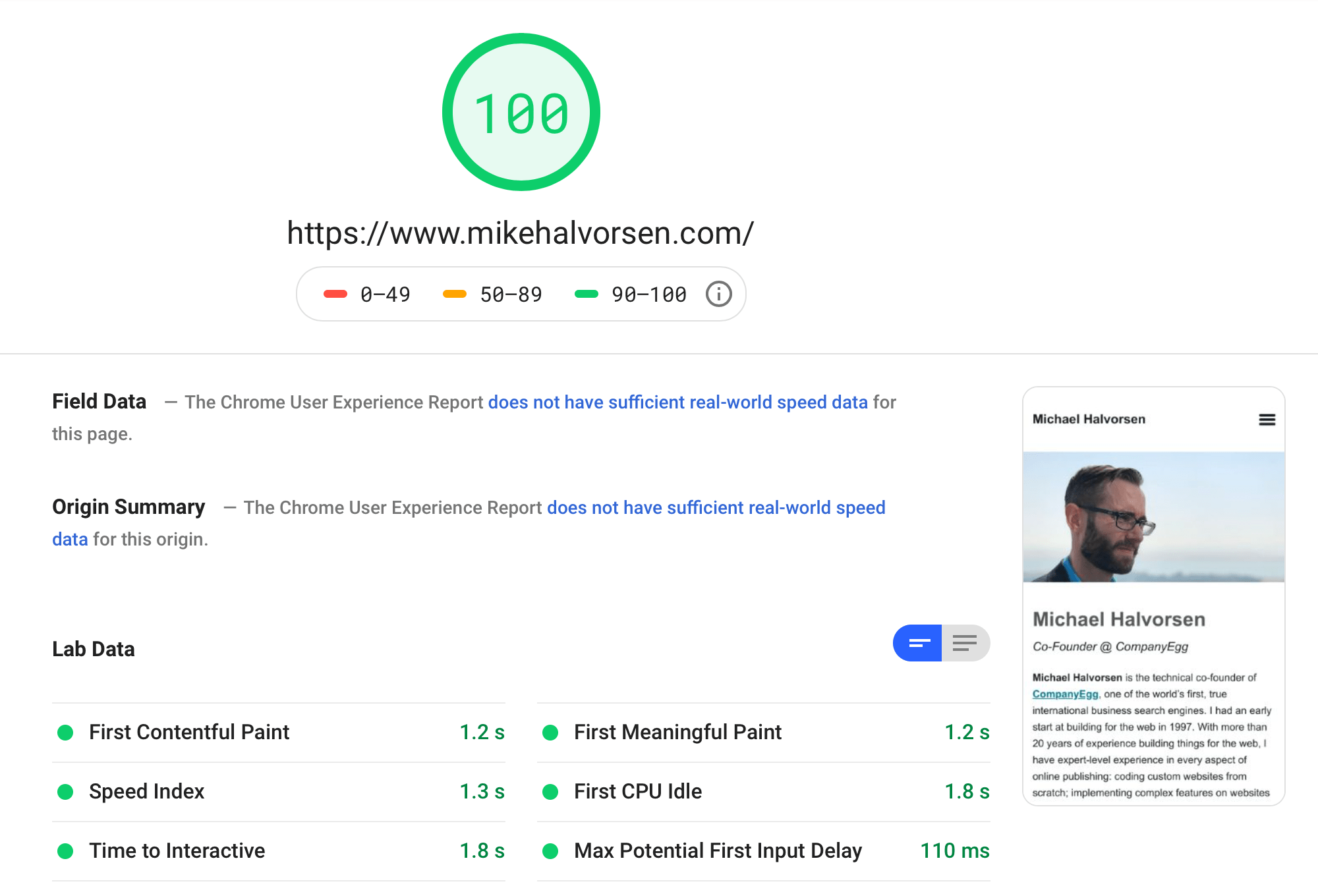
Google PageSpeed Insights Test for Mike Halvorsen on Mobile
Result for this website on Mobile